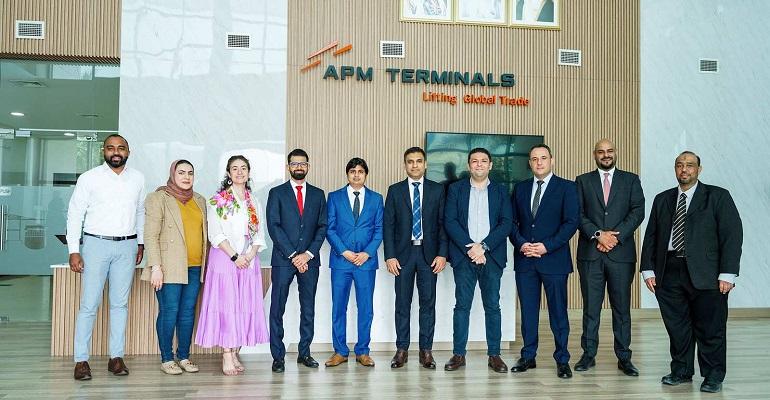APM Terminals said its global decarbonisation plans aim to reduce greenhouse gas emissions by 70% by 2030 and achieve net zero by 2040. “As a subsidiary of A.P. Moller-Maersk, APM Terminals is committed to leading the way in promoting sustainability within the maritime industry, and the solar-power project in Bahrain is one of the main pillars in its overall decarbonisation journey,” it said.
By implementing this project, the terminal will reduce its carbon emissions by 65% while also securing a reliable and sustainable source of energy. Bahrain has set goals to reduce the kingdom’s emissions by 30% by 2035 and achieve net zero by 2060.
“We are very excited to take the first major step in our decarbonisation plans, which will make Khalifa Bin Salman Port the region’s first seaport to be fully powered by renewable energy. Our decarbonisation strategy for the port is in line with the vision of HM The King and the commitment of HRH the Crown Prince and Prime Minister for Bahrain, as well as APM Terminals’ global goal of being safer, better, and bigger,” said Farooq Zuberi, Chief Finance Officer and Interim Managing Director, APM Terminals Bahrain.
“We are constantly striving to develop more sustainable and responsible business practices in order to serve better our customers and the communities in which we work.”
At the end of the solar implementation project, APM Terminals Bahrain will have installed 20,000 solar photovoltaic panels capable of generating 18.5 Gigawatts of electricity per year. The renewable energy source will produce clean and sustainable energy for powering various port operations, including container handling, crane operations, and lighting.
“APM Terminals Bahrain is excited to contribute to the government’s efforts to realise a carbon-neutral Bahrain and be part of A.P. Moller-Maersk’s goal to achieve net-zero GHG emissions in 2040 across all business entities,” it said.
APM Terminals Bahrain continues to streamline its operations at KBSP to optimise time, cost and flow efficiency. “At our Container Freight Station (CFS), improvements and changes are to be introduced that help us keep up with market developments and customers’ expectations, which make us safer, more agile, and better performing,” it said.
“A new process is being designed based on customer feedback and strategic planning to ease the supply chain and ultimately serve you better. This process will enable you to choose your preferred timing slots to receive your cargo from the CFS.”
In addition, visual management has been introduced in the CFS, enabling speedy allocation of container position through screens at the CFS main building. The payment process has also been simplified to make invoice drafts easily available via the CFS clerks, saving customers time and eliminating multiple trips within the port. Improvements have also been introduced to enhance the container cycle time for de-stuffing and loading cargo into trucks.
In December 2021, Bahrain launched its global sea-to-air hub, a multimodal logistics hub connecting Bahrain International Airport and KBSP, according to Bahrain’s Economic Development Board.
“The hub’s use of cutting-edge technology has streamlined clearance procedures to such an extent that it will offer a two-hour end-to-end bonded lead time for all containers transiting between the airport and KBSP, meaning products can be with customers in half the time and at 40% of the cost,” it said.
Copyright © 2024. All rights reserved. Seatrade, a trading name of Informa Markets (UK) Limited.
Add Seatrade Maritime News to your Google News feed.  |

